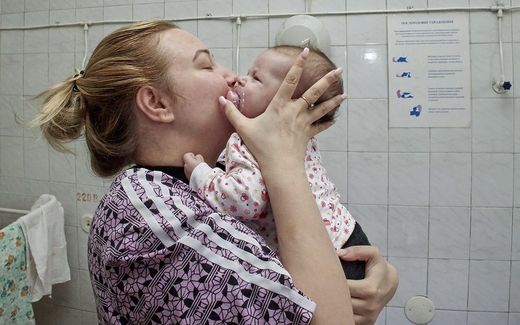Italy closer to banning surrogacy abroad

Surrogacy is an infringement on children's rights, the Italian government believes. Photo AFP, Yuriy Dyachyshyn
Southern Europe
Italians who want to obtain a child through surrogacy via foreign countries will be punishable as far as parliament is concerned. Now only the Senate has to decide whether surrogacy for Italians will be criminalised worldwide.
The Italian parliament on Wednesday approved a bill making surrogacy a “universal crime.” Although the practice has been banned within Italy since 2004, it is still possible for people to obtain a child through a foreign country. But this “inhumane practice” must stop, the Meloni government believes. That is why this law makes cross-border surrogacy punishable, with fines of up to one million euros and prison terms of up to two years for people who continue despite this ban.
The draft, a flagship policy of Meloni's Brothers of Italy party, was passed in the Chamber of Deputies with 166 votes in favour and 109 against. Four MPs abstained. Now, the bill needs the approval of the upper house Senate to become law. There, the government also has a majority.
Eugenia Roccella, the Minister of Families, participated in a demonstration outside the parliament to support the bill. “Today is important”, she said, “as it puts Italy at the forefront of the defence of women and children at an international level. We hope this vote will open a global debate on this practice to achieve its abolition.”
The LGBT movement in Italy, in particular, is reacting with outrage to the passed legislation. According to a spokesman for Arcigay, Italy's largest LGBT advocacy organization, the "absurd" law is a "threat to thousands of families."
However, according to Carolina Varchi, the author of the law, surrogacy violates the child's rights. “The relationship we want to protect is the child’s right to have a mom and a dad. Every child has a biological parent, and that parent can register their child, who has all the rights of everyone at the registry office”.
Related Articles







